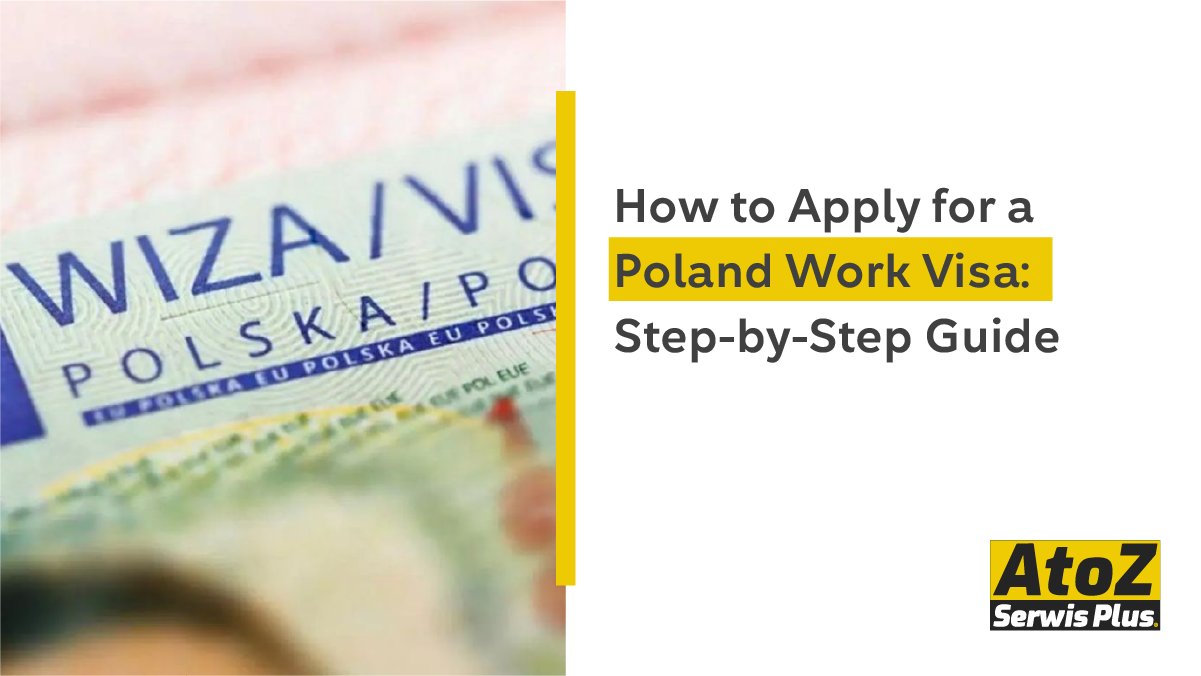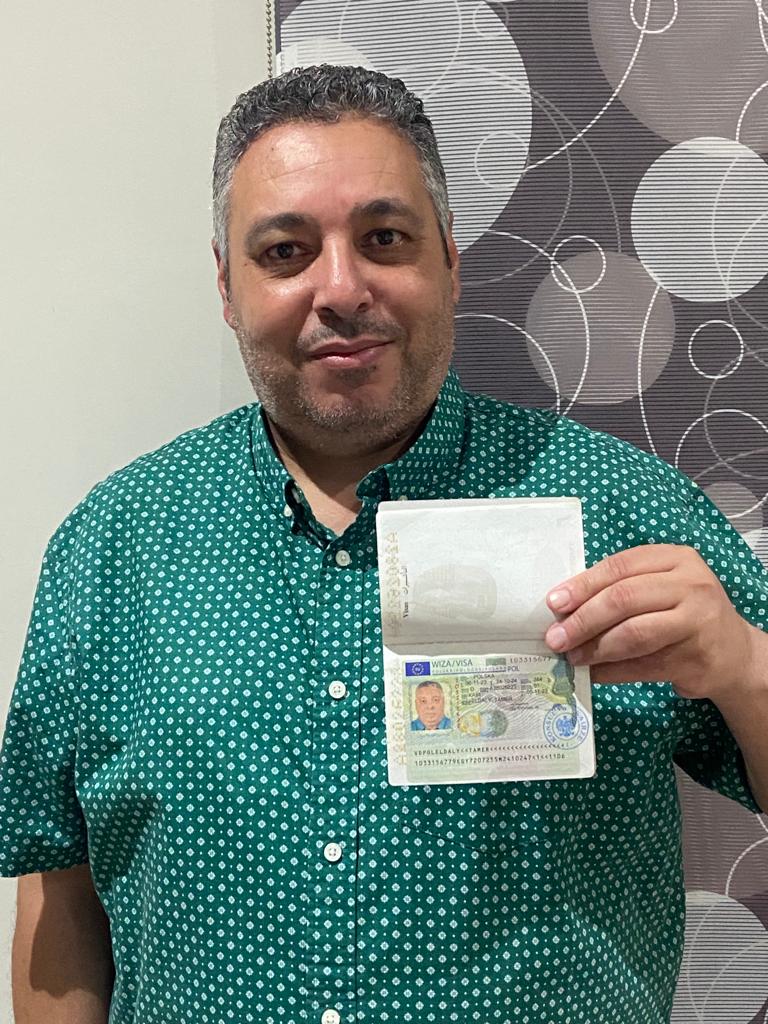

How to Apply for a Poland Work Visa Step-by-Step Guide
Poland Work Visa 2025 – Complete Step-by-Step Guide for Foreign Workers
Poland has become one of Europe's most popular destinations for foreign workers. With its strong economy, central location, and high demand for labour, the country offers thousands of opportunities every year. Workers from India, Nepal, Bangladesh, Pakistan, Sri Lanka, the Philippines, Vietnam, and many African countries are applying for jobs in sectors like logistics, construction, healthcare, agriculture, and hospitality.
If you plan to work in Poland, you will need a Polish work visa. This guide explains the entire process — from visa types and requirements to processing times, family options, and seasonal jobs.
Do I Need a Visa to Work in Poland?
The answer depends on your nationality:
- EU/EEA/Swiss citizens: No visa or work permit is required. However, if the stay exceeds 90 days, workers must register their residence.
- Non-EU/EEA citizens: A valid work permit (issued by a Polish employer) and a work visa are required to work legally.
Without these, working in Poland is illegal and may result in deportation or a ban.
Types of Polish Work Visas in 2025
Foreigners can apply for different visas depending on the job type and duration:
- National Work Visa (Type D)
- For employment lasting more than 90 days.
- Usually tied to a work permit issued by the employer.
- Valid up to 1 year.
- Schengen Work Visa (Type C)
- For short-term assignments (up to 90 days within 180 days).Primarily for training, meetings, or seasonal short work.
- Seasonal Work Visa
- For jobs in agriculture, tourism, hospitality, and construction.
- Valid for up to 9 months within a single calendar year.
- Popular among workers from Asia and Eastern Europe.
- EU Blue Card
- For highly skilled professionals (IT, engineers, researchers, doctors).
- Allows long-term residence and work across the EU.
Poland Work Visa Requirements
To apply, you generally need the following documents:
- Valid passport (minimum 12 months validity).
- Completed the Poland visa application form.
- Passport-size biometric photos.
- Official work permit issued by the employer.
- Employment contract or job offer.
- Proof of accommodation (hotel booking, rental contract, or employer-provided housing).
- Proof of sufficient funds or employer guarantee.
- Health insurance valid in Poland (minimum €30,000 coverage).
- Police clearance certificate (for some nationalities).
- Visa application fee receipt.
Additional documents may be requested depending on nationality.
How to Apply for a Polish Work Visa – Step by Step
- Find an Employer in Poland
- Your employer must be licensed and willing to sponsor your work permit.
- Employer Applies for Work Permit
- The employer applies to the local Voivodeship Office.
- If approved, they receive an official work permit (Types A, B, C, D, or E).
- Receive Work Permit & Contract
- Your employer sends you the work permit and signed contract.
- Apply at the Polish Embassy/Consulate
- Submit your visa application form and supporting documents.
- Pay the visa fee.
- Attend Interview
- Answer questions about your job, employer, and travel plans.
- Wait for Processing
- Processing typically takes 6–12 weeks, depending on the embassy's workload.
- Collect Visa & Travel
- Once approved, collect your visa and travel to Poland.
- Register After Arrival
- Register your stay with local authorities and apply for a temporary residence card if staying longer than 3 months.
Poland Work Visa Fees (2025)
- Work visa application fee: €80–€100 (varies by embassy).
- Work permit application fee: €30–€50 (paid by employer).
- Residence permit card fee: Around €100.
Processing Time for a Polish Work Visa
- Standard processing: 6–12 weeks.
- Seasonal visas: May take 3–6 weeks.
- Delays may occur due to incomplete documents or high demand.
Duration of Stay and Validity
- Work visa (Type D): Valid up to 1 year.
- Work permit: Usually valid for the duration of the job contract, up to 3 years.
- Residence card: Can be extended for a period of 3 years at a time.
Extending a Polish Work Visa
You must apply before your visa expires. Required documents:
- Updated employment contract
- Employer confirmation
- Health insurance proof
- Proof of accommodation
Failure to extend may result in penalties for overstaying the permitted period.
Changing Jobs in Poland
- Work permits are employer-specific.
- If you change employers, a new work permit is required.
- You cannot continue working under your old employer's permit.
Bringing Family Members to Poland
- Spouses and children can join you through family reunification.
- Family members receive residence cards.
- They may also access healthcare, education, and in some cases, employment.
Poland Seasonal Work Visa
This visa is for temporary jobs in:
- Agriculture (fruit picking, harvesting).
- Hospitality (hotels, restaurants).
- Construction.
It is valid for up to 9 months within a one-year period. Employers arrange accommodation and sometimes meals.
FAQs About the Poland Work Visa
1. Do I need a visa to work in Poland?
Yes. If you are a non-EU/EEA citizen, you require a valid Polish work visa or work permit to work legally in Poland. In Poland, EU/EEA and Swiss citizens can work without a visa, but must register their stay if it exceeds 90 days.
2. What are the types of Polish work visas you can apply for?
Poland offers various types of work visas, including the National Work Visa (Type D), the Schengen Visa (Type C) for short-term work, and the Seasonal Work Visa for temporary employment in specific sectors, such as agriculture or hospitality.
3. What are the requirements for a Polish work visa?
The requirements generally include:
- A valid passport
- Completed visa application form
- Job offer or contract from a Polish employer
- Employer-issued work permit
- Proof of accommodation in Poland
- Medical insurance and financial proof
4. How do I apply for a Polish work visa?
First, your employer will need to obtain a work permit for you. Once approved, you apply for the visa at the Polish consulate/embassy in your country. Submit all required documents, attend an interview, and pay the visa fee.
5. How long does it take to get a Polish work visa?
Processing times vary, but it usually takes 6–12 weeks, depending on the embassy workload, your nationality, and the type of visa. Seasonal visas may be processed faster.
6. How long can I stay in Poland with a work visa?
A Polish work visa (Type D) is usually issued for up to 1 year and can be renewed. The exact duration of your stay depends on your work contract and work permit validity.
7. What is the validity of a Polish work permit?
Work permits are generally valid for the duration of your employment contract, up to a maximum of 3 years, with the possibility of renewal if your employment continues.
8. Can I extend my Polish work visa?
Yes. You can apply for an extension of your residence permit before your current visa expires. This requires proof of continued employment and updated supporting documents.
9. What if I want to change my job in Poland?
If you change employers, you will need to apply for a new work permit. Permits are linked to a specific employer and job role. You cannot legally continue working under the old license.
10. Can I bring my family members to Poland on a work visa?
Yes. Once you hold a valid residence permit, you can apply for family reunification so your spouse and children can join you in Poland. They will also receive residence cards.
11. What is a Poland Seasonal Work Visa?
The Poland Seasonal Work Visa enables non-EU citizens to work temporarily in industries such as agriculture, construction, and hospitality. It is valid for up to 9 months in a year and is popular among candidates from Asia and Eastern Europe.
Want to work and live in Europe?
AtoZ Serwis Plus — Europe’s No. 1 immigration consultancy — guides you step by step from visa to job placement. Register now and start your journey today!

















